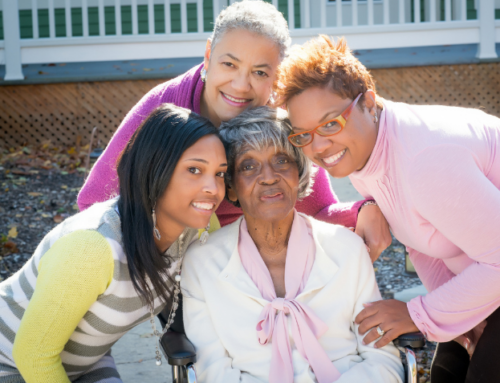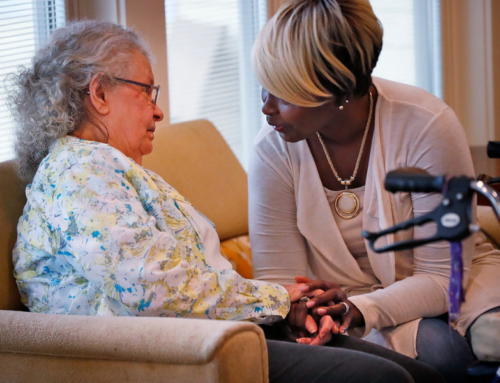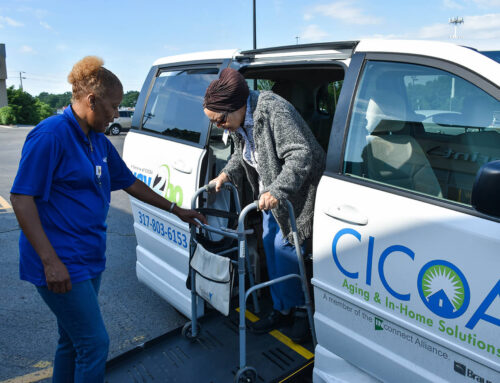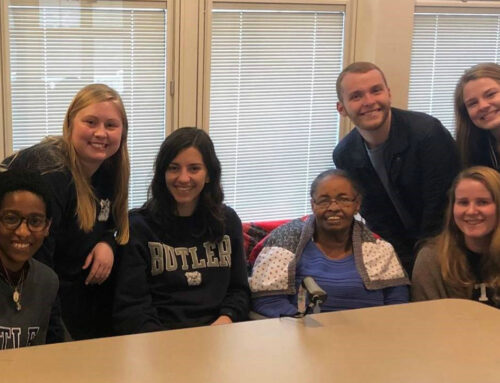
Five ways millennial caregivers can find help
Amanda Singer had her plate full running a dance studio in Massachusetts.
But after her mother underwent emergency surgery and radiation for breast cancer late last year, Singer, 28, unexpectedly found herself taking on an even bigger responsibility — the role of unpaid family caregiver.
Singer is one of millions of millennial caregivers in the United States.
While most of her peers are focused on their careers or relationships, Singer spends twelve hours a day, three days a week, keeping her mother company and helping with household tasks like grocery shopping.
Singer has put her romantic life on hold, and said her social life is “not even existent.”
Millennial caregivers are a hidden group bucking the stereotype for their generation.
“There’s a pervasive myth that millennials are narcissistic and that they’re selfish,” said Feylyn Lewis, a post-doctoral research fellow at the University of Sussex, whose work focuses on young adult caregivers in the U.S.
This stereotype makes it challenging for millennial caregivers to get the recognition and help they need, she said.
There are about 40 million caregivers in the United States, according to a 2015 study by the AARP. In 2013, they contributed approximately $470 billion of unpaid work to the economy.
While the typical caregiver tends to be a middle-aged woman, millennials form nearly a quarter of the caregiving population.
Below are five steps to help millennials cope with caregiving, which can often be emotionally and physically demanding.
You are not alone
Rebekah Beeton, 21, spent much of her life caring for her mother, who was diagnosed with multiple sclerosis the year Beeton was born.
Beeton remembers helping with daily activities like fixing her mother’s hair at age 10. At 17, she became the primary caregiver alongside her father until her mother’s death in December.
“I remember feeling very alone sometimes, that no one else was going through what I was going through,” said Beeton.
Though support groups skew toward older generations, millennials can connect online with caregivers their age.
Beeton found support through the National Multiple Sclerosis Society and Joni and Friends, a religious organization for those with disabilities and their families.
Take care of yourself
“The guilt will kill you,” said Tiffany Marcum, 33, who moved in with her father to care for him in 2015 as his dementia progressed.
Until her father’s death in January, Marcum would lay out his clothes before waking him each morning, then walk him through getting dressed, help him take his medication and prepare him for his daytime care center. She worked full time and spent evenings after work caring for him as well.
Despite doing all that she could, Marcum still felt guilty for not doing more.
“I was frustrated, and felt bad that I felt frustrated and guilty,” Marcum said.
For Marcum, therapy and anti-depressants were helpful. She also recommends being honest about your feelings in support groups.
Self-care is critical. When a caregiver is too focused on others, they can neglect their own needs and burn out. Get plenty of rest and take breaks, when possible.
“Millennials have to plan for the financial part, as they’re getting older, too,” Whiting said.
Organizations including the Alzheimer’s Association (http://alz.org/) and the Women’s Institute for a Secure Retirement (http://www.wiserwomen.org/) provide resources to help caregivers prepare for long-term financial sustainability.
Know your state’s discrimination laws
The average millennial caregiver is employed and works 34.9 hours a week, according to the AARP. But caregiving can get in the way of career advancement.
“Millennials are trying to get started in their careers,” said Lewis. “If you need to take time off for work or if you’re late for work, your caregiving is starting to impact the role you have.”
Different states have different laws protecting caregivers from discrimination. You can find more about your rights on AARP’s website (https://www.aarp.org/caregiving/).
Avoid comparisons with peers
Every millennial caregiver’s life changes in different ways, so avoid comparing yourself with others.
Beeton, who got a college degree online to continue caregiving, reminds herself that it is okay if she hits milestones at different times than her peers.
Beeton knew her mom would not be around forever. She would remind herself: “This is what life’s about right now.”
This article is shared from a newsletter published by Applegate Elder Law and its original source can be found here.
Applegate Elder Law
140 North Rangeline, Carmel IN 46032
317-522-1325
Applegate Elder Law provides resources for the caregiving community and hosts a number of events throughout the year. For a list of upcoming events click the Caregiver Crossing link below or click here to be taken to the Applegate Elder Law website.
Sign-Up for the Joy's House Newsletter!
Join our community and get updates straight to your inbox.






